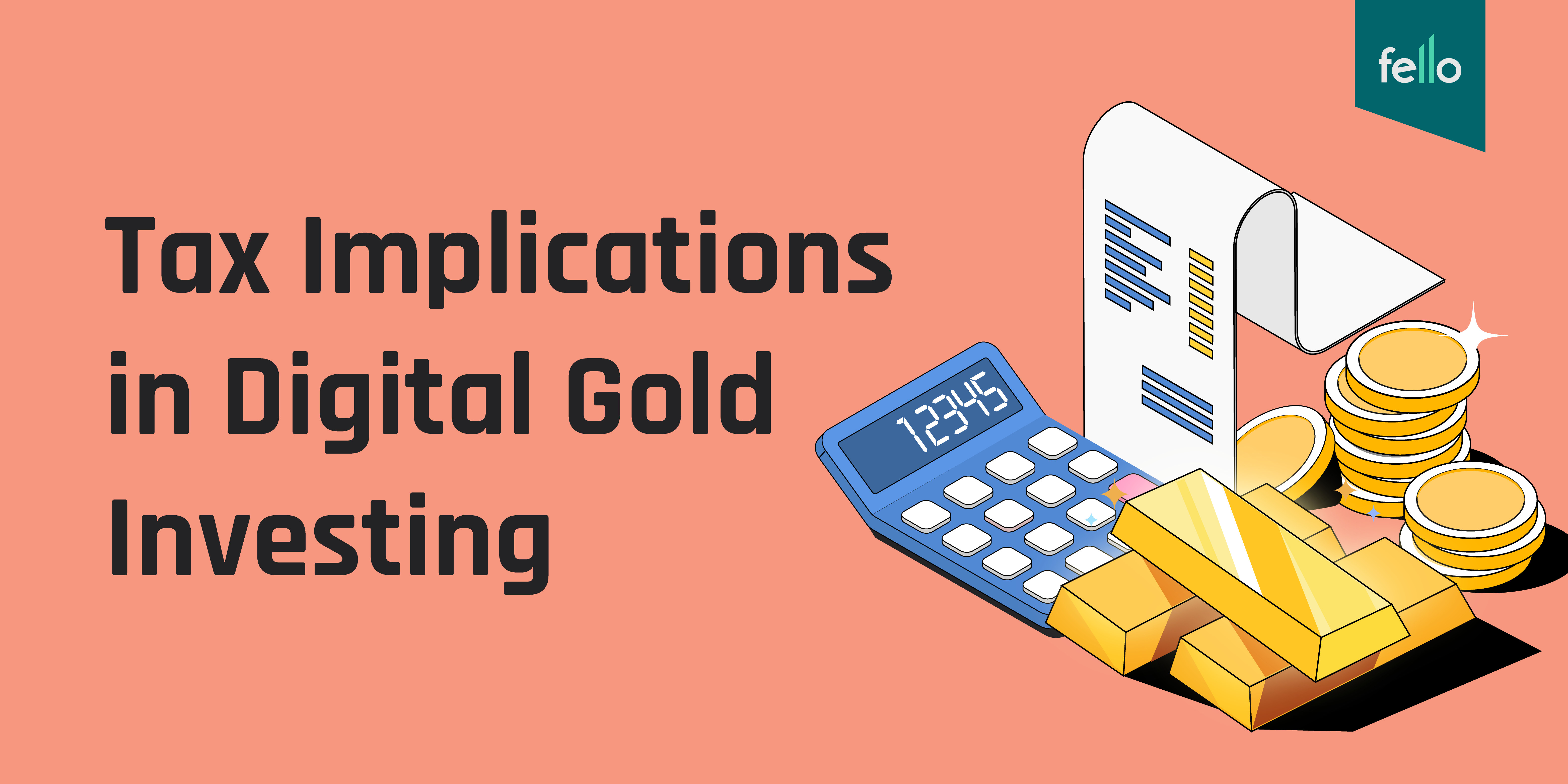In India, gold has always been more than just a precious metal; it’s deeply embedded in our culture and holds significant financial value. With the advent of technology and innovation, investing in gold has evolved beyond physical assets to include digital gold. While digital gold investments offer convenience and accessibility, it’s essential to understand the taxation aspects to make informed financial decisions. In this comprehensive guide, we will demystify the taxation when you buy digital gold in India, covering everything from purchase to redemption, and help you navigate the tax landscape effectively.
Understanding Digital Gold Investments
Digital gold allows investors to buy and hold gold in a digital format, eliminating the need for physical storage and security concerns. It offers benefits such as affordability, liquidity, and transparency. However, it’s crucial to be aware of the tax implications associated with these investments to maximize returns while staying compliant with tax laws.
Taxation on Different Types of Gold Investments
India is one of the largest gold importers in the world, where most of the gold is used for jewellery purposes. When we sell gold in India, the taxes depend on the time we kept it.
Capital gains from the gold which is sold within three years of its buying or a short term are taxed directly with our income tax. And the capital gains from the gold which is sold after three years of buying or a long-term are taxed based on the nature of the investment. Different types of gold investments are taxed differently.
Let’s examine how different forms of gold investments are taxed, including digital gold investments.
How is Physical Gold Investment Taxed?
If we sell our gold jewellery within 3 years of buying it, we don’t need to worry about any additional taxes as it gets calculated with our income tax itself.
But after three years, the return on our gold investment is considered a long-term capital gain, and we need to pay 20% of our capital gains as a tax, with the addition of any surcharge, and 4% cess, with indexation benefits. Moreover, we also need to pay the additional GST while buying physical gold.
This means the purchase price of gold is adjusted after factoring in inflation. So, a plethora of taxes is applicable when it comes to physical gold investments.
How is Paper Gold Investment Taxed?
To passively track the price of gold, gold ETFs invest in physical gold. Gold ETFs are therefore purchased by gold mutual funds. In other words, a rising gold price increases the worth of a gold ETF or fund, and vice versa.
The taxes on mutual fund returns and gold ETFs are similar to that on physical gold, i.e. 20% plus 4% cess for long-term capital gains. SGB returns, on the other hand, are taxed differently. After 8 years of holding an SGB, our returns get tax-free.
In case we sell it before 8 years, the interest is usually under the range of 2.5% per annum, which is considered income from other sources and taxed accordingly.
A five-year lock-in period is standard for SGB offerings. All returns from such transactions are treated as long-term capital gains if we decide to sell the assets after this period, but before they reach maturity we have to pay a tax of 20% with a 4% cess and an additional surcharge.
How are Returns from Gold Derivatives Taxed?
The taxes on our gold derivative returns are applicable according to the size and total profit of our business. For instance, 6% of the returns are taxed if the annual total turnover of a business is less than Rs 2 crore.
Returns from gold derivatives can be claimed as business income, which can reduce the tax liability associated with such transactions.
According to some experts, if we wish to enjoy the benefits of Section 44AD of the Income Tax Act, we would need to maintain a precise record of our business’s books and accounts.
How is Digital Gold Investment Taxed?
Investments when you buy digital gold are treated the same way as investments in physical gold when it comes to taxation and gains. Digital gold investment is popular among youngsters due to its affordability and convenience.
Thus, we need to understand how it is taxed as well. Short-term gains or gains within 3 years of buying digital gold are taxed with income tax itself. Long-term capital gains from our digital gold investment are taxed at 20% with a cess of 4% and a surcharge.
Way Forward
You can get started with digital gold investment using Fello. One of Fello’s remarkable avenues for your savings and investments is Digital Gold. This option allows you to invest in the super-stable commodity of gold, but with a modern twist. Gone are the complexities and hassles associated with physical gold. Instead, you embrace the ease and convenience of investing in digital form. Fello also provides an option for you to set up autosave so that you don’t have to visit the app again and again to make timely investments That’s not it with Fello your money is absolutely safe as the investments are powered by Augmont which is NABL and BIS accredited and a member of India Good Delivery standard on NSE, BSE and MCX. Buy digital gold and grow your savings today!

